Abarth 500 595 695 vs Mercedes Vito Bus – Which car suits you better?
Everyday use, family trips or long-distance drives – here’s where the differences show.
Discover whether Abarth 500 595 695 or Mercedes Vito Bus fits your lifestyle better.
Costs and Efficiency:
Looking at overall running costs, both models reveal some interesting differences in everyday economy.
Abarth 500 595 695 has a slightly advantage in terms of price – it starts at 32600 £, while the Mercedes Vito Bus costs 36300 £. That’s a price difference of around 3768 £.
In terms of energy consumption, the advantage goes to the Abarth 500 595 695: with 17.10 kWh per 100 km, it’s convincingly more efficient than the Mercedes Vito Bus with 26.70 kWh. That’s a difference of about 9.60 kWh.
As for range, the Mercedes Vito Bus performs clearly perceptible better – achieving up to 370 km, about 105 km more than the Abarth 500 595 695.
Engine and Performance:
Power, torque and acceleration are the classic benchmarks for car enthusiasts – and here, some clear differences start to show.
When it comes to engine power, the Mercedes Vito Bus has a distinct edge – offering 237 HP compared to 155 HP. That’s roughly 82 HP more horsepower.
In terms of top speed, the Abarth 500 595 695 performs minimal better – reaching 155 km/h, while the Mercedes Vito Bus tops out at 140 km/h. The difference is around 15 km/h.
There’s also a difference in torque: Mercedes Vito Bus pulls clearly stronger with 500 Nm compared to 235 Nm. That’s about 265 Nm difference.
Space and Everyday Use:
Beyond pure performance, interior space and usability matter most in daily life. This is where you see which car is more practical and versatile.
Seats: Mercedes Vito Bus offers convincingly more seating capacity – 8 vs 4.
In curb weight, Abarth 500 595 695 is decisively lighter – 1410 kg compared to 2023 kg. The difference is around 613 kg.
In terms of boot space, the Mercedes Vito Bus offers convincingly more room – 1390 L compared to 185 L. That’s a difference of about 1205 L.
In maximum load capacity, the Mercedes Vito Bus performs significantly better – up to 4990 L, which is about 4440 L more than the Abarth 500 595 695.
When it comes to payload, Mercedes Vito Bus decisively takes the win – 1077 kg compared to 385 kg. That’s a difference of about 692 kg.
Who comes out on top?
Overall, the Mercedes Vito Bus shows itself to be wins the duel decisively and secures the title of DriveDuel Champion.
It convinces with the more balanced overall package and proves to be the more versatile choice for everyday use.
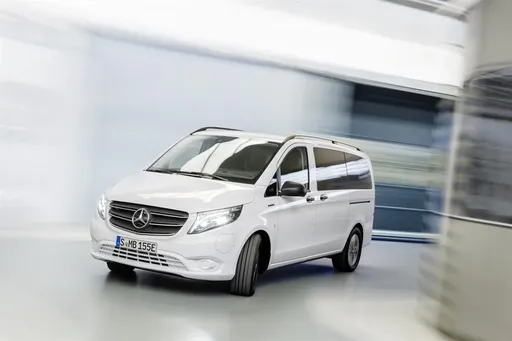 @ Mercedes-Benz Group Media
@ Mercedes-Benz Group Media
Mercedes Vito Bus
Abarth 500 595 695
The Abarth 500, particularly in its 595 and 695 renditions, captures the spirit of Italian motoring with its compact yet aggressive design. Known for its lively performance and distinctive styling, this little powerhouse is a joy to drive, offering an engaging experience that appeals to enthusiasts. With its rich motorsport heritage, the Abarth 500 embodies the essence of fun and excitement on both the streets and the race track.
details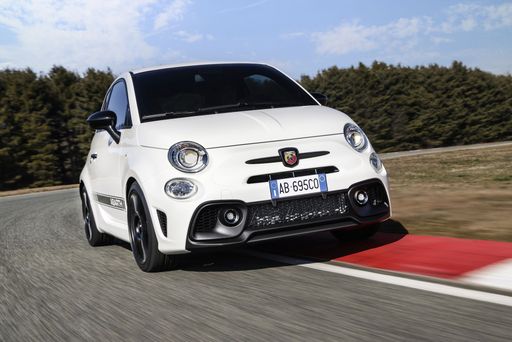 @ Abarth / Stellantis Media
@ Abarth / Stellantis Media
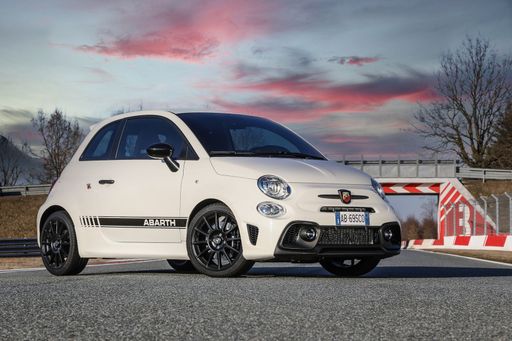 @ Abarth / Stellantis Media
@ Abarth / Stellantis Media
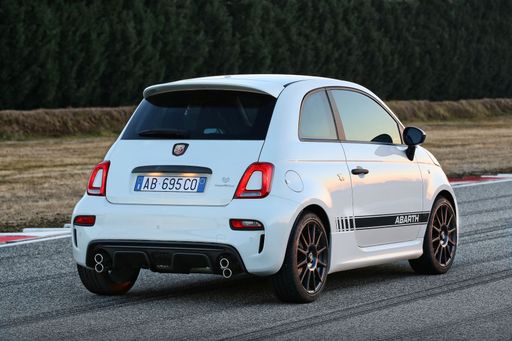 @ Abarth / Stellantis Media
@ Abarth / Stellantis Media
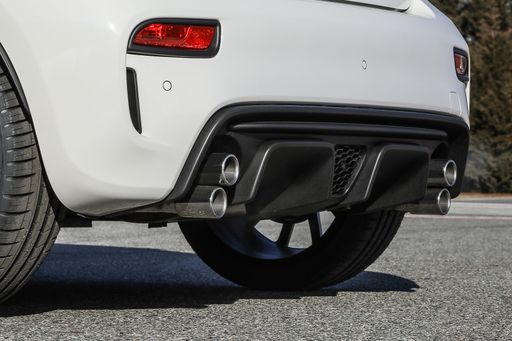 @ Abarth / Stellantis Media
@ Abarth / Stellantis Media
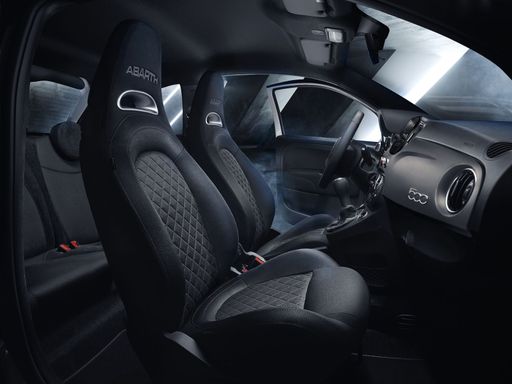 @ Abarth / Stellantis Media
@ Abarth / Stellantis Media
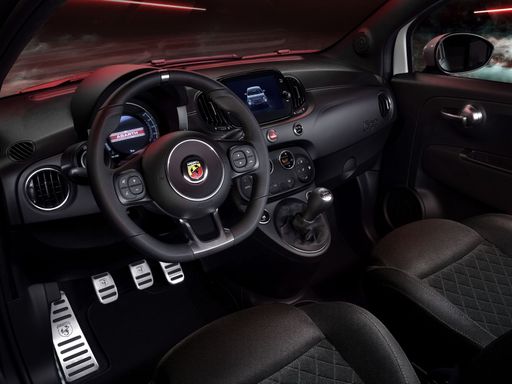 @ Abarth / Stellantis Media
@ Abarth / Stellantis Media
Mercedes Vito Bus
The Mercedes-Benz Vito Bus offers a versatile solution for those in need of spacious and comfortable group transportation. Its refined interior is designed to enhance passenger comfort, making it ideal for both business and leisure travel. With a focus on safety and efficiency, it provides a reliable driving experience that aligns with the high standards expected of the Mercedes-Benz brand.
details @ Mercedes-Benz Group Media
@ Mercedes-Benz Group Media
 @ Abarth / Stellantis Media
@ Abarth / Stellantis Media
|
 @ Mercedes-Benz Group Media
@ Mercedes-Benz Group Media
|
|
|
|
Costs and Consumption |
|
|---|---|
|
Price
32600 - 39400 £
|
Price
36300 - 55900 £
|
|
Consumption L/100km
-
|
Consumption L/100km
6.7 - 10 L
|
|
Consumption kWh/100km
17.1 - 18.8 kWh
|
Consumption kWh/100km
26.7 - 26.9 kWh
|
|
Electric Range
242 - 265 km
|
Electric Range
248 - 370 km
|
|
Battery Capacity
37.80 kWh
|
Battery Capacity
60 - 90 kWh
|
|
co2
0 g/km
|
co2
0 - 228 g/km
|
|
Fuel tank capacity
-
|
Fuel tank capacity
57 - 70 L
|
Dimensions and Body |
|
|---|---|
|
Body Type
Hatchback
|
Body Type
Bus
|
|
Seats
4
|
Seats
8
|
|
Doors
3
|
Doors
4
|
|
Curb weight
1410 - 1435 kg
|
Curb weight
2023 - 2739 kg
|
|
Trunk capacity
185 L
|
Trunk capacity
580 - 1390 L
|
|
Length
3673 mm
|
Length
4895 - 5370 mm
|
|
Width
1682 mm
|
Width
1928 mm
|
|
Height
1518 mm
|
Height
1890 mm
|
|
Max trunk capacity
550 L
|
Max trunk capacity
4190 - 4990 L
|
|
Payload
370 - 385 kg
|
Payload
726 - 1077 kg
|
Engine and Performance |
|
|---|---|
|
Engine Type
Electric
|
Engine Type
Diesel, Electric, Petrol
|
|
Transmission
Automatic
|
Transmission
Automatic
|
|
Transmission Detail
-
|
Transmission Detail
Automatic Gearbox, Reduction Gearbox
|
|
Drive Type
Front-Wheel Drive
|
Drive Type
Rear-Wheel Drive, All-Wheel Drive, Front-Wheel Drive
|
|
Power HP
155 HP
|
Power HP
136 - 237 HP
|
|
Acceleration 0-100km/h
7 s
|
Acceleration 0-100km/h
-
|
|
Max Speed
155 km/h
|
Max Speed
140 km/h
|
|
Torque
235 Nm
|
Torque
330 - 500 Nm
|
|
Number of Cylinders
-
|
Number of Cylinders
4
|
|
Power kW
114 kW
|
Power kW
100 - 174 kW
|
|
Engine capacity
-
|
Engine capacity
1950 - 1999 cm3
|
General |
|
|---|---|
|
Model Year
2023
|
Model Year
2024
|
|
CO2 Efficiency Class
A
|
CO2 Efficiency Class
G, A
|
|
Brand
Abarth
|
Brand
Mercedes-Benz
|
Is the Abarth 500 595 695 offered with different drivetrains?
The Abarth 500 595 695 is offered with Front-Wheel Drive.
The prices and data displayed are estimates based on German list prices and may vary by country. This information is not legally binding.
